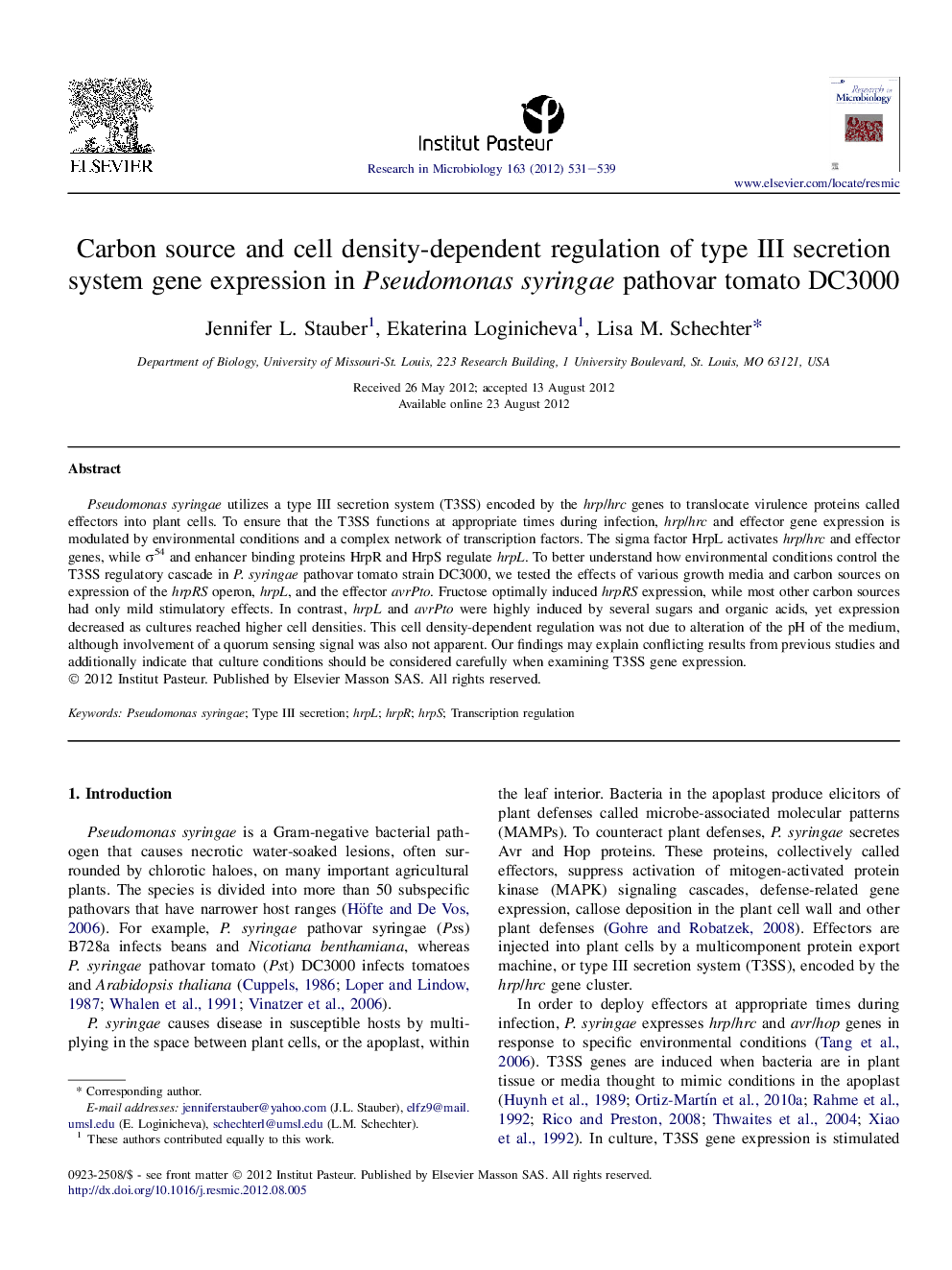| کد مقاله | کد نشریه | سال انتشار | مقاله انگلیسی | نسخه تمام متن |
|---|---|---|---|---|
| 4358654 | 1300448 | 2012 | 9 صفحه PDF | دانلود رایگان |

Pseudomonas syringae utilizes a type III secretion system (T3SS) encoded by the hrp/hrc genes to translocate virulence proteins called effectors into plant cells. To ensure that the T3SS functions at appropriate times during infection, hrp/hrc and effector gene expression is modulated by environmental conditions and a complex network of transcription factors. The sigma factor HrpL activates hrp/hrc and effector genes, while σ54 and enhancer binding proteins HrpR and HrpS regulate hrpL. To better understand how environmental conditions control the T3SS regulatory cascade in P. syringae pathovar tomato strain DC3000, we tested the effects of various growth media and carbon sources on expression of the hrpRS operon, hrpL, and the effector avrPto. Fructose optimally induced hrpRS expression, while most other carbon sources had only mild stimulatory effects. In contrast, hrpL and avrPto were highly induced by several sugars and organic acids, yet expression decreased as cultures reached higher cell densities. This cell density-dependent regulation was not due to alteration of the pH of the medium, although involvement of a quorum sensing signal was also not apparent. Our findings may explain conflicting results from previous studies and additionally indicate that culture conditions should be considered carefully when examining T3SS gene expression.
Journal: Research in Microbiology - Volume 163, Issue 8, September–October 2012, Pages 531–539